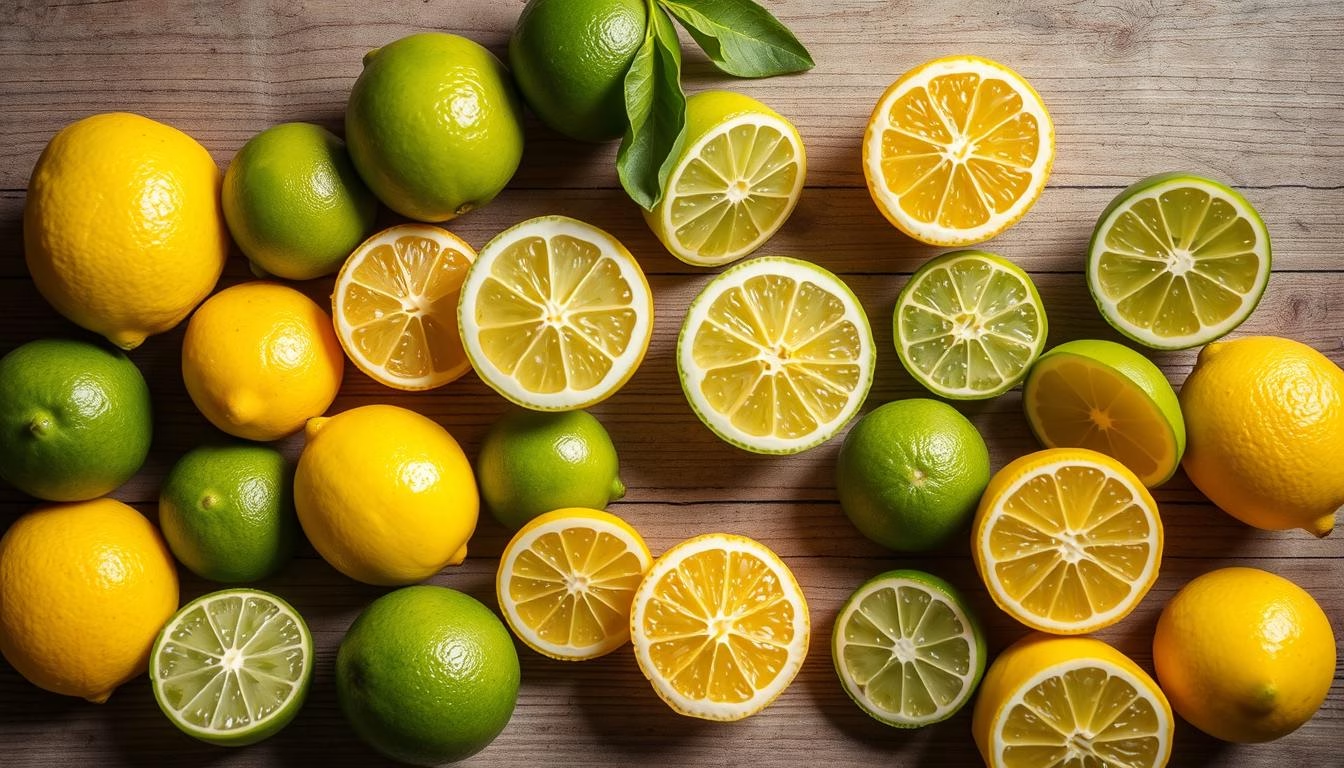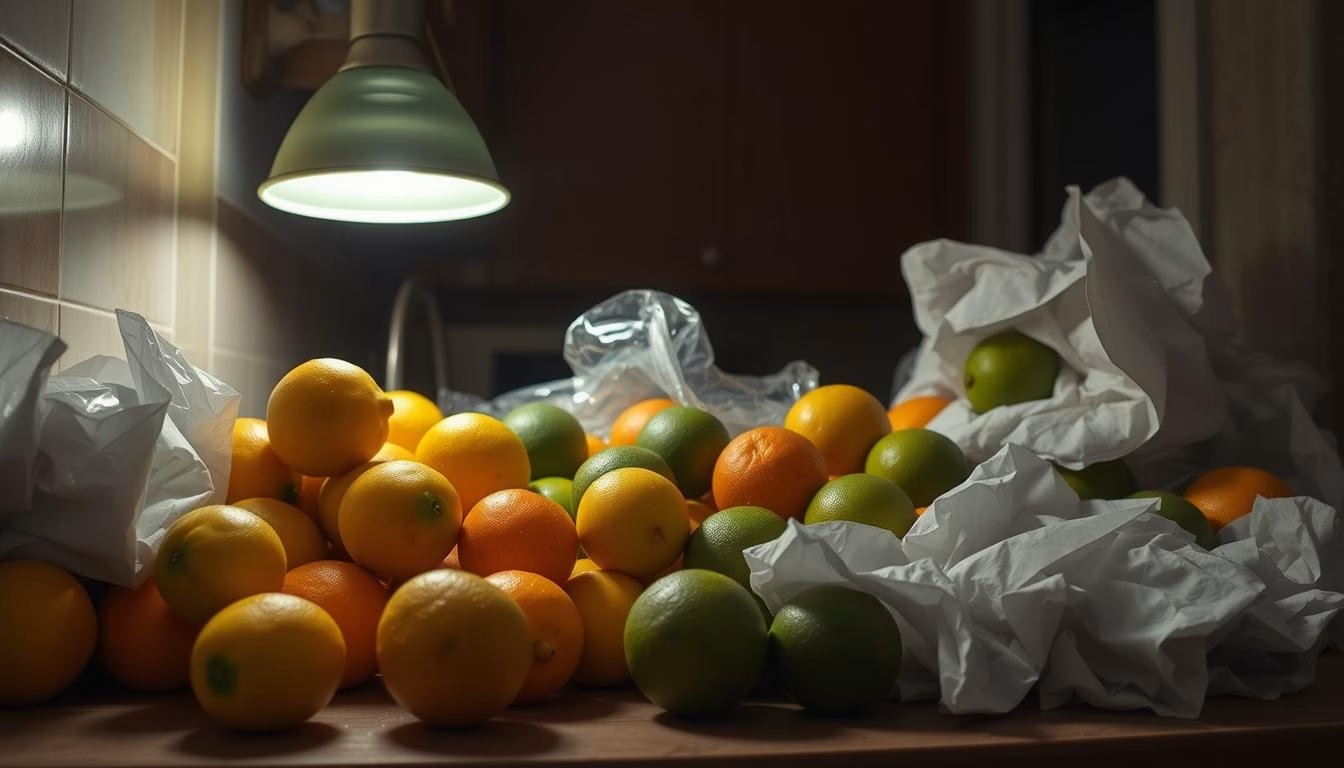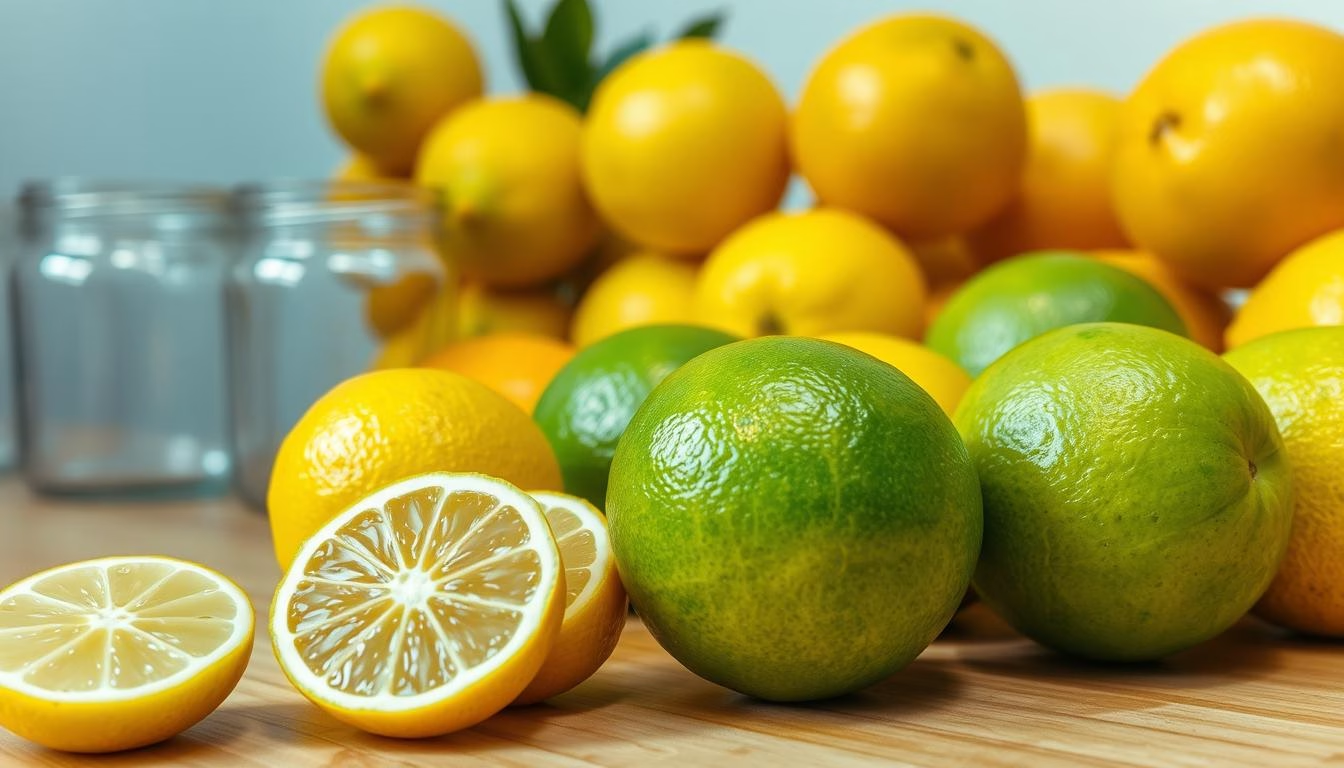When it comes to extending the life of your citrus fruits, understanding the best methods is key. Lemons and limes, like other citrus, are prized for their vibrant flavors and versatility in both culinary and cultural practices. However, their freshness can be fleeting if not stored properly.
While some popular hacks suggest storing citrus in water, scientific research reveals that airtight containers are far more effective. This method not only prevents bacterial growth but also preserves the natural flavor and nutritional benefits of your fruit. Proper storage is essential to minimize risks and maintain quality.
Historical practices have evolved into modern, evidence-based recommendations. Today, experts like those at UC Davis and Sunkist Growers emphasize the importance of refrigeration and container choice. Storing citrus in tightly sealed zip-top or silicone bags creates a humid environment that prevents moisture loss, significantly prolonging shelf life.
It’s also important to separate citrus from ethylene-producing fruits like bananas and apples, as they can accelerate spoilage. Whole fruits generally last longer than cut pieces, which should be wrapped in plastic and kept in an airtight container. Refrigeration techniques and careful handling can make a significant difference in both taste and longevity.
For those looking to keep their citrus fresh for even longer, freezing is a viable option. Whole fruits can be stored for up to four months, while zest and juice can be preserved for several months when frozen properly. Learning how to store other delicate fruits can also provide insights into maintaining the freshness of your citrus.
Understanding Citrus Care and Storage Fundamentals
Citrus fruits, such as lemons and limes, have a rich history that dates back centuries. Once considered luxury items in ancient Rome, these vibrant fruits have evolved into everyday staples in modern kitchens. Their journey from rare treats to common ingredients reflects advancements in agriculture and transportation.
The History and Value of Citrus
Historically, lemons and limes were cherished for their flavor and preservative qualities. Today, they are integral to various recipes, from culinary dishes to beverages. This transition from luxury to everyday use underscores their versatility and enduring value in our kitchens.
How Temperature and Moisture Affect Freshness
Temperature and moisture are critical in maintaining citrus freshness. Optimal storage temperatures for lemons and limes are between 45-50°F and 52-58°F, respectively. Maintaining these temperatures prevents dehydration and spoilage, preserving both flavor and texture.
Moderating moisture levels is equally important. While some moisture prevents dehydration, excess can lead to mold. Using airtight containers or crisper drawers helps maintain the right balance, extending the life of your citrus fruits.
For those interested in maintaining freshness beyond a month, freezing is a viable option. Whole fruits can be stored for up to four months, while zest and juice can be preserved even longer. Learning effective storage techniques can enhance your kitchen’s efficiency.
Understanding these fundamentals allows us to appreciate the science behind maintaining citrus quality. By balancing temperature and moisture, we can enjoy our lemons and limes for a longer period, whether in recipes or as fresh additions to our meals.
Best Way to Store Lemons and Limes
Proper storage is essential to maintain the freshness and quality of lemons and limes. Whether you’re keeping them at room temperature or in the refrigerator, understanding the right techniques can make a significant difference.
Utilizing Airtight Containers and Crisper Drawers
Airtight containers and crisper drawers are excellent for maintaining humidity and preventing moisture loss. Using zip-top baggies or perforated plastic bags helps create a humid environment that keeps your citrus fresh for up to a month. These containers are designed to allow just the right amount of air circulation, preventing condensation and mold growth.

For optimal results, store whole lemons and limes in the crisper drawer. This area maintains higher humidity than the rest of the refrigerator, which is ideal for citrus. If you prefer room temperature storage, ensure the fruits are kept away from direct sunlight and ethylene-producing fruits like bananas and apples.
Whole Versus Cut Citrus: What You Need to Know
Whole citrus fruits generally last longer than cut pieces. When stored properly in an airtight container, whole lemons and limes can remain fresh for up to a month. Cut citrus, on the other hand, should be wrapped tightly in plastic and kept in an airtight container to prevent moisture loss and spoilage.
As the saying goes, “A balanced approach to storage is the key to preserving nature’s bounty.”
For those interested in learning more about maintaining freshness, exploring storage techniques for other delicate fruits can provide valuable insights.
- Store whole citrus in airtight containers or crisper drawers for up to a month.
- Wrap cut pieces in plastic and keep them in an airtight container.
- Separate citrus from ethylene-producing fruits to prevent spoilage.
By following these guidelines, you can enjoy your lemons and limes for a longer period, whether in recipes or as fresh additions to your meals.
Avoiding Common Citrus Storage Pitfalls
When preserving citrus fruits like grapefruit and pomelo, it’s crucial to avoid common mistakes that can shorten their freshness. Proper storage techniques ensure your citrus remains vibrant and flavorful for a longer period.
Dangers of Using Water to Store Citrus
Storing citrus in water can lead to harmful bacterial growth, including listeria and salmonella. This method might seem convenient but poses serious safety risks. Instead, use mesh bags or perforated plastic to allow airflow, preventing moisture buildup and contamination.

Opt for crisper drawers to maintain optimal humidity levels, keeping your citrus fresh without excess moisture. This approach is particularly effective for grapefruit and pomelo, which are more sensitive to environmental conditions.
Preventing Ethylene Gas Exposure in Your Kitchen
Ethylene gas from fruits like apples and bananas can accelerate spoilage. Keep citrus away from these to prevent premature ripening. For cut pieces like wedges, store them in airtight containers in the crisper drawer to maintain freshness.
- Avoid water storage to prevent bacterial contamination.
- Use mesh bags for proper ventilation.
- Store citrus separately from ethylene-producing fruits.
By following these guidelines, you can enjoy your citrus fruits longer, whether they’re whole or cut into wedges. Proper storage ensures they retain their flavor and texture, making every meal more delightful.
Stop Wasting Citrus! Start Using These Lemon & Lime Storage Tips Today!
Storing citrus fruits like lemons and limes requires careful attention to their environment to maintain freshness. By using a crisper drawer and ensuring proper air circulation, you can extend their shelf life significantly. Make sure to keep them away from ethylene-producing fruits to prevent premature spoilage, as this gas can accelerate ripening and decay.
Following these guidelines helps preserve both the flavor and nutritional value of your citrus. Monitor the color and rind health to ensure they remain vibrant and fresh throughout the year. Whether you’re using them in pasta dishes or as a zesty addition to beverages, proper storage techniques will keep your lemons and limes at their best. Share your experiences and experiment with these methods to maximize their use in your kitchen creations!
FAQ
How long can I keep citrus fruits fresh in the refrigerator?
Citrus fruits like lemons and limes can stay fresh in the refrigerator for up to two weeks when stored properly in an airtight container or sealed plastic bag. The crisper drawer is ideal for maintaining the right moisture levels.
Should I wash citrus fruits before storing them?
No, it’s best to avoid washing citrus fruits before storage. Excess moisture can lead to mold and spoilage. Instead, wipe them gently with a clean cloth and pat dry before placing them in the fridge.
Can I store citrus fruits at room temperature?
While citrus fruits can be kept at room temperature for a short period, they will typically last only a few days. For longer freshness, refrigeration is recommended to slow down the ripening process.
What is the best container for storing citrus fruits?
Use an airtight container or a sealed plastic bag to store citrus fruits. This helps maintain humidity and prevents the fruits from drying out. You can also use the crisper drawer in your fridge for optimal results.
How do I prevent citrus fruits from drying out?
Keep citrus fruits in a humid environment, such as the crisper drawer, and ensure they are sealed in an airtight container or bag. This will help retain their natural moisture and keep them fresh for a longer time.
Can I store cut citrus fruits in the same way as whole fruits?
Cut citrus fruits should be stored in an airtight container in the refrigerator and consumed within a few days. Cut fruits are more prone to drying out and spoilage compared to whole fruits.
How does ethylene gas affect citrus fruits?
Citrus fruits produce ethylene gas, which can cause nearby fruits to ripen faster. Storing them away from other fruits can help slow down the ripening process and maintain freshness.
Can I store other citrus fruits like oranges or grapefruits the same way?
Yes, most citrus fruits, including oranges and grapefruits, can be stored using the same methods. However, larger fruits like pomelos may require more space and careful handling to prevent bruising.
How do I know if a citrus fruit has gone bad?
Check for soft spots, mold, or a sour smell. If the fruit has shriveled significantly or changed color, it’s likely past its prime and should be discarded.
Can I freeze citrus fruits to extend their shelf life?
Yes, you can freeze citrus fruits, but it’s best to juice or zest them first. Frozen juice can be stored for up to six months, while zest can be frozen for a similar duration. Whole fruits may not thaw well and are better kept fresh or refrigerated.

